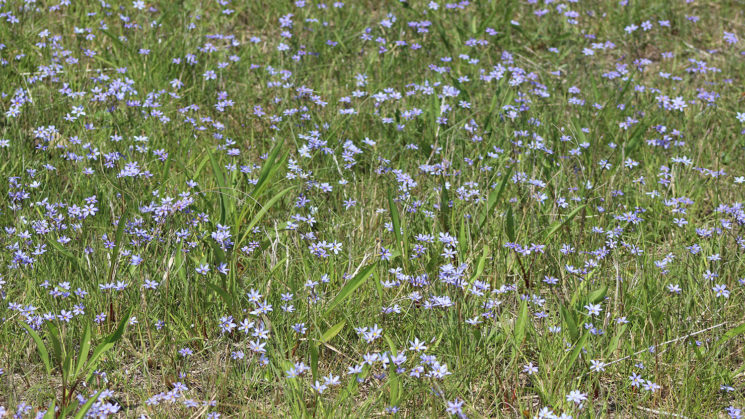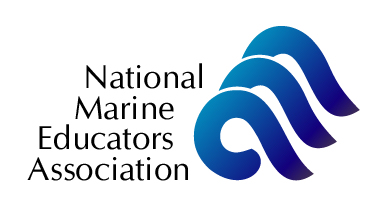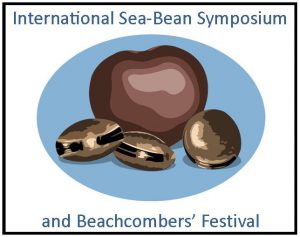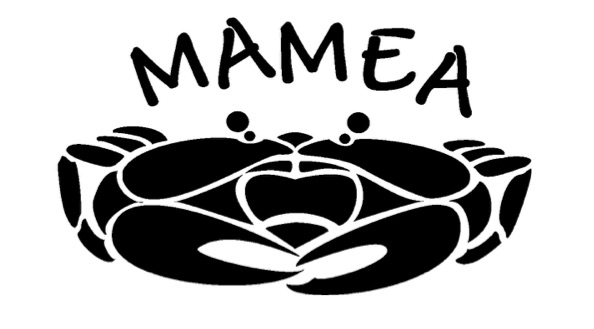
Photo by Vanda Lewis
Welcome to the newest online issue of Scotch Bonnet. This marine education newsletter also is available as a PDF, if you’re like me and want to keep a hard copy.
It was certainly a very long winter, wasn’t it? I know we’re all looking forward to warmer weather this spring and summer.
While you’re planning your summer vacation, be sure to research any environmental education (EE) centers that may be in your community, or near wherever you’re heading. These centers offer a variety of educational programs for kids and families, as well as summer camp opportunities so students can extend their learning outside of the classroom.
The N.C. Office of Environmental Education and Public Affairs maintains a list of EE centers around the state. Please take advantage of all opportunities that these facilities offer you and your family. Check this listing to find the EE center near you.
I also wanted to mention a couple of other recent items that may stimulate interest, discussion, and perhaps classroom use:
Our state’s history is closely tied to barrier islands and shifting inlets. Check out this new online tool to see how our N.C. inlets have shifted over time.
I’ve written about this blog before, but wanted to remind you of it again. Although currently shut down for a redesign, please bookmark this website for future reference. You can also follow them on Twitter at @BuzzHootRoar.
Christina H. Koch, selected as a NASA astronaut in 2013, has been assigned to the International Space Station mission that is scheduled to launch in April 2019. She grew up in Jacksonville, N.C. and graduated from N.C. State University with degrees in Physics (B.S.) and Electrical Engineering (B.S. and M.S.). Astronaut Koch was an N.C. Space Grant awardee to attend the NASA Academy program at Goddard Space Flight Center in 2001. We’ll keep an eye on the sky in 2019 and alert you when this home-grown astronaut takes flight!
Thanks to Jobi Cook, Sandy Canfield, Shannon Culpepper, Lauren Daniel, Lori Davis, Melissa Dowland, Bonnie Eamick, Candis George, Jennifer Gilbreath, Joy Greenwood, D’Nise Hefner, Gail Lemiec, and Kathryn Stevenson for their contributions to this issue. Wishing you all a wonderful summer season!
* * *
As you explore this new issue of Scotch Bonnet, you will notice professional development opportunities and family adventures for everyone. Take advantage of these wonderful conferences, workshops and more, especially if you’re working on your environmental education certification. Keep reading for unique opportunities and ideas for educators. There’s a lot going on in North Carolina and beyond!
The 2018 Blue Heron Bowl was held on Saturday, February 17, in Wilmington. Hosts included the University of North Carolina Wilmington, the Center for Marine Science, and the Watson School of Education.
Congratulations to the North Carolina School of Science and Mathematics (NCSSM) for their repeat as Blue Heron Bowl champions! The team told their 2018 Blue Heron Bowl story in a blog post for N.C. Sea Grant’s Coastwatch Currents.
The Blue Heron Bowl is a regional marine science quiz bowl. Two teams, each composed of four students and one alternate, square off against each other to answer questions related to marine science. Many of these students are coached by a marine science or general science teacher who sponsors their training. Each match consists of six minutes of toss-up and bonus questions, followed by two team challenge questions, and ends with a final six minutes of toss-up and bonus questions. North Carolina Sea Grant is proud to be a long-time supporter of the Blue Heron Bowl.
The NCSSM team went on to the national competition, which took place April 19 to 22, in Boulder, Colorado, but did not place in the top eight finishers. Better luck next year!
What: Teachers on the Estuary
When: Tuesday, June 19 and Wednesday, June 20; 9:00 a.m. to 5:00 p.m. each day
Where: N.C. Coastal Reserve classroom, 101 Pivers Island Road, Beaufort
Who: K-12 Classroom Teachers
Cost: FREE
Teachers on the Estuary (TOTE) is a professional development program of the National Estuarine Research Reserve System. Workshop participants will:
Attendees will receive CEU and EE certification credits, as well as copies of all activities to use in their classroom. Lunch will be provided on both days. Participants are responsible for their own lodging.
To learn more or to register, contact Lori Davis at lori.c.davis@ncdenr.gov or 252-838-0883.
What: Flying WILD Workshop
When: Monday, August 20; 9:00 a.m. to 3:30 p.m.
Where: Cape Fear Botanical Garden, 536 N. Eastern Boulevard, Fayetteville
Cost: FREE, with $10 admission to the Garden (admission free for Members)
RSVP: https://form.jotform.com/73113938290962
This six-hour workshop is for teachers, educators, and/or parents. Targeted for the middle-school audience, though widely adaptable, Flying WILD offers practical hands-on classroom and outdoor field investigation experiences connecting real-world experiences in bird biology, conservation, and natural history.
Through activities involving language arts, social science, and math experiences, coupled with community outreach and service learning applications, Flying WILD offers a whole-school approach to environmental education, using birds as the focus.
Flying WILD offers six hours of CEU and EE Certification (Criteria I) credits. A homework option is available for additional credit hours. This workshop will be partially outdoors so please wear comfortable closed toed shoes and dress for the weather. Feel free to bring bug spray, a water bottle, and binoculars (although some will be made available for people to use).
Please bring a bag lunch. Must attend workshop to receive materials. Pre-registration is required.
kathrynstevenson.wordpress.ncsu.edu/
Are you interested in using citizen science in the classroom?
Are you located in the NC coastal counties, or do you have a waterway nearby?
Have you ever wanted to participate in a University project?
If you answered YES to these questions, read on!
Duke and N.C. State Universities are seeking 4th and 5th grade teachers to participate in a two-year project centered around marine debris, water quality, and how students can use citizen science to make a difference.
Dr. Kathryn Stevenson and her team are seeking participants NOW for the first of two workshops, set for June 25-26 in Beaufort. Selected educators will receive all curriculum materials, a $100 stipend, and room and board.
The informational flyer can be found here. Questions? Contact Jenna Hartley at jenna_hartley@ncsu.edu.
What: N.C. CATCH
When: Saturday, July 14; 9:00 a.m. to 4:00 p.m.
Where: Blue Jay Point County Park, 3200 Pleasant Union Church Rd., Raleigh
Cost: FREE, but pre-registration is required
RSVP: https://apm.activecommunities.com/wakeparks/Activity_Search/2986
N.C. CATCH (Caring for Aquatics Through Conservation Habits) is an aquatic resource education program that provides workshop training to adults to enable them to work with youth ages 8 to 15 in discovering aquatic environments through learning activities, educational materials, aquatic field trips and fishing experiences. Taught by an education specialist from the N.C. Wildlife Resource Commission, this workshop is appropriate for educators and youth leaders; it introduces participants to proper conservation habits, outdoor ethics, fish and aquatic species information, water safety tips and practical fishing skills.
Participants receive the N.C. CATCH Instructor’s Guide and are eligible to order student handbooks, posters, fish identification cards, and fish mobiles and to obtain rod and reel loan information. Middle school teachers, curriculum specialists, scout leaders, recreation therapists, park personnel, camp counselors, fishing and environmental club members, 4-H leaders, and other youth leaders will find these materials adaptable and appropriate. N.C. CATCH is interdisciplinary and can be used to meet many middle school competency goals and objectives.
This six-hour adult workshop counts as a Criteria I workshop in the N.C. Environmental Education Certification Program. Bring a bag lunch. FREE, but pre-registration is required.
What: Aquatic WILD
When: Saturday, August 11; 9:00 a.m. to 4:00 p.m.
Where: Blue Jay Point County Park, 3200 Pleasant Union Church Rd., Raleigh
Cost: FREE, but pre-registration is required
RSVP: https://apm.activecommunities.com/wakeparks/Activity_Search/3210
Facilitated by N.C. Wildlife Resources educator Casey Williams, this six-hour workshop introduces participants to the free Aquatic WILD K–12 educator guide. The workshop is similar to the Project WILD Basic workshop, except the focus is on aquatics.
Aquatic WILD workshops are open to all interested educators, including classroom teachers, environmental educators, resource agency staff, park personnel, college students and faculty, and youth leaders. This 6-hour workshop counts as a Criteria I workshop in the N.C. Environmental Education Certification Program. Adult workshop; bring a bag lunch. FREE, but pre-registration is required.
What: Project WILD
When: Wednesday, September 12; 9:00 a.m. to 4:00 p.m.
Where: Blue Jay Point County Park, 3200 Pleasant Union Church Rd., Raleigh
Cost: FREE, but pre-registration is required
RSVP: https://apm.activecommunities.com/wakeparks/Activity_Search/3211
Facilitated by NC Wildlife Resources educator Casey Williams, this six-hour Project WILD workshop is for adults interested in teaching young people about wildlife. Participants receive the Project WILD K-12 educator guide along with materials specifically about North Carolina wildlife. The educator guide contains more than 150 hands-on activities that focus on wildlife and natural resources.
Project WILD workshops are open to all interested educators, including classroom teachers, environmental educators, resource agency staff, park personnel, college students and faculty, and youth leaders. Bring a bag lunch. This six-hour adult workshop counts as a Criteria I workshop in the N.C. Environmental Education Certification Program. FREE, but pre-registration is required.
Looking for other opportunities? For information about additional teacher education programs, contact Melissa Dowland at 919-707-9898. Here are a couple of professional development options from the Museum.
What: Microbes and Math
When: Saturday, June 30, and Sunday, July 1; 9:00 a.m. to 5:00 p.m. each day
Where: N.C. Museum of Natural Sciences, 11 West Jones Street, Raleigh
Cost: $25 (includes lunch on Saturday, classroom materials)
Required: For educators only (recommended for HS teachers, administrators, pre-service
teachers)
Credits: 16 contact hours towards CEUs
RSVP: http://naturalsciences.org/calendar/educator-trek-registration/
Based on her research on salt-adapted microbes (halophiles) and in collaboration with the NC School of Science and Math, Dr. Amy Schmid and her colleagues from Duke University have developed a five-part learning module that engages teachers in current scientific content and models about how to integrate scientific inquiry into the classroom. During this two-day workshop, participants will perform the module’s five steps: (1) reading primary literature on transcriptional regulation of stress response, (2) formulating hypotheses and designing experiments, (3) measuring microbial growth, (4) calculating microbial growth rates using Python code and/or user-friendly Excel spreadsheets and (5) analyzing data.
So that participants can implement the learning module in their classrooms, they will receive activity kits, which will include background materials, a booklet, interactive modeling Excel spreadsheets, a coupon for purchasing a Halobacterium growth kit from Carolina Biological, and assessment forms for students and teachers. The module will also include experimental demonstrations that are adaptable for a laboratory on a budget.
For aditional information, click here.
What: Using DNA Sequence Analysis Tools in Your Classroom
When: Saturday, August 11; 9:00 a.m. to 5:00 p.m.
Where: N.C. Museum of Natural Sciences, 11 West Jones Street, Raleigh
Cost: $35 (includes lunch on Saturday, classroom materials)
Required: For educators only (recommended for HS teachers, administrators, pre-service teachers)
Credits: 8 contact hours towards CEUs
RSVP: http://naturalsciences.org/calendar/educator-trek-registration/
Explore how DNA sequence analysis can be used to examine communities of microscopic organisms. Learn how microbiome samples are collected and processed for sequencing and tour the Genomics & Microbiology Research Lab. Gain hands-on experience working with online sequence databases and analysis tools and learn how to use these resources with your students.
Workshop participants will design a collaborative research project to take back and use in their classrooms. During the 2018-2019 school year, each participant’s class will contribute a set of samples to be sequenced, then will analyze and compare their sequence data to the larger group data set.
For additional information, click here.
Lauren Daniel, the state’s Project WET and Stream Watch coordinator, has hit the ground running! Contact her at Lauren.Daniel@ncdenr.gov for questions about any of the following opportunities.
What: Project WET workshop
When: Wednesday, July 18
Where: Schiele Museum, 1500 E Garrison Blvd, Gastonia
Contact Stephenie Berggrun at stephenieb@cityofgastonia.com with questions or to register.
What: Stream Watch volunteer training
When: To be determined (TBD)
Where: TBD
Are you interested in taking a leadership role to ensure your local stream is clean and pristine? If yes, then apply today to be a part of North Carolina’s growing Stream Watch program! Add pictures to a statewide database and show students what streams look like across the state. Sign up here. It’s painless, and fun.
What: It’s Our Water
When: TBD
Where: TBD
Cost: $40 per person
This is an online Criteria I workshop that is available for educators. It’s Our Water is a robust water resources program targeting 8th grade environmental science curriculum which is now available online. Complete at your own pace within six months of registration.
For more information, click here.
What: Getting Little Feet WET
When: TBD
Where: TBD
You asked, and we listened! There have been many requests for additional educational support for early childhood educators. If you’re interested in hosting or attending a water-based educational workshop for early childhood educators, contact Lauren Daniel at Lauren.Daniel@ncdenr.gov.
Immerse yourself in the rich marine, island and mainland ecosystems of Baja California, Mexico, from July 29 to Aug. 7, 2019. Connect with nature to energize your learning for the school year ahead, and delve into resources to connect your students with the ocean. Both formal and informal educators are welcome.
Explore Bahia de los Angeles in the San Felipe Desert from both the water and land. Snorkel the turquoise waters, rich with sea life. Swim with whale sharks and sea lions in the Sea of Cortez. Discover the UNESCO-designated World Heritage Site as a priority conservation area and its extraordinary diversity of marine life. Conservation is a key component of this trip, and participants will be engaged with a conservation project in the field.
What: Baha Island Ecology Educator Program
When: July 29 to August 7, 2019
Where: Baja California, Mexico
Cost: $1,995 + airfare to San Diego. Travel to San Diego not included. Required travel insurance not included. $250 non-refundable deposit to hold a spot.
RSVP: reservations.ncaquariums.com/fortfisher/Info.aspx?EventID=59
Contact Gail Lemiec at 910-772-0546 or gail.lemiec@ncaquariums.com with questions about the trip.
naturalsciences.org/calendar/event/sciren-triangle-and-educator-open-house/
What: SciREN Triangle and Educator Open House
When: Thursday, September 20; 5:30 to 8:30 p.m.
Where: N.C. Museum of Natural Sciences, 11 West Jones Street, Raleigh
Cost: FREE
The SciREN Triangle Networking Event and Museum Open House is an information exchange night just for educators! This special night invites scientists and teachers from the Triangle/Piedmont region to interact in a relaxed environment. The event showcases the wide array of Museum programs and opportunities for both teachers and students available both onsite and offsite. Educators can preview exhibits and activities while working out the logistics of a school fieldtrip, talk directly with education and research staff about onsite programs, and find out first-hand about distance learning, outreach, and professional development opportunities.
Through a partnership with SciREN (Scientific Research and Education Network), educators can meet more than 60 local scientists ready to distribute curriculum-centered lessons based on their research! This is an excellent way to rejuvenate teaching methods, integrate relevant and real science to student learning, and reach out into the community.
Join EENC for the 2018 conference at the Doubletree by Hilton in Atlantic Beach from Thursday, September 27 to Saturday, September 29. Enjoy a conference full of professional development, networking, learning, and field experiences that will help you expand your knowledge of EE and resources in coastal N.C. and beyond.
Consider bringing your family and spending the weekend at the beach. Conference registration is currently open. Click here for details. See you at the coast in the fall!
There are many conferences scheduled for this year. Join your fellow marine educators and beach lovers at one — or more — of these great events.
 |
National Marine Educators Association’s Annual Conference www.marine-ed.org July 13 to 20, 2018 Long Beach, California |
 |
Environmental Educators of NC Annual Conference www.eenc.org Sept. 27 to 29 Atlantic Beach, North Carolina |
 |
International Sea-Bean Symposium www.seabean.com Oct. 20 to 21, 2017 Cocoa Beach, Florida |
 |
Mid-Atlantic Marine Education Association Annual Conference www.mamea.org/conf.html Nov. 9 to 11 Portsmouth, Virginia |
If you ever have information to share with other marine educators, please don’t hesitate to send it my way for inclusion in a future issue of the Scotch Bonnet. Let me know what you’re hearing from the sea!
Please share this website or newsletter with others — and share my email address with anyone who wants to receive a message notifying that a new issue of Scotch Bonnet is available online. Thanks for all you do for students and for other educators!
Best Fishes!
Terri Kirby Hathaway
Marine Education Specialist
North Carolina Sea Grant
Email: tkhathaw@ncsu.edu
Phone: 252-475-5486
Fax: 252-475-3545
Address: North Carolina Sea Grant, PO Box 699, Manteo, NC 27954